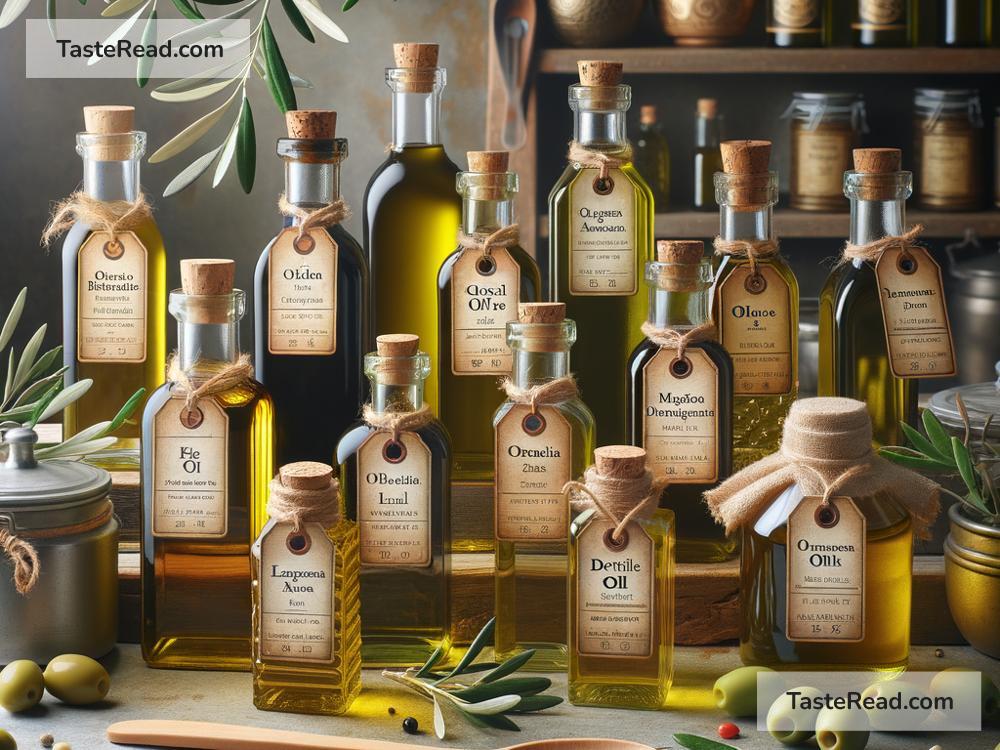Title: Journey Through the Mediterranean: A Taste of Its Olive Oils
Olive oil, the liquid gold of the Mediterranean, has been a staple in kitchens around the world for thousands of years. Not only is it prized for its versatility in cooking, but also for its numerous health benefits. However, not all olive oils are created equal. As we take a journey through the Mediterranean, we discover the rich tapestry of regional olive oils, each with its unique flavors and characteristics shaped by the land, climate, and age-old traditions.
The Italian Elegance
Starting our journey in Italy, the variety of olive oils here is as rich as its culture. From the rolling hills of Tuscany to the sun-kissed coasts of Sicily, every region boasts its own type of olive oil. Tuscan olive oil, for instance, is renowned for its bold, peppery flavor, which comes from the local Frantoio and Leccino olives. It’s perfect for drizzling on a slice of crusty bread or adding a kick to salads. Down south, Sicilian olive oil, with its lighter and fruitier notes, beautifully complements seafood dishes, giving them a fresh Mediterranean twist.
The Greek Heritage
Sailing from Italy to Greece, the diversity of olive oil continues to astound. Greece, with its ancient history intertwined with olive cultivation, offers a wide array of olive oils that reflect the soul of its land and people. The island of Crete, in particular, is famous for its extra virgin olive oil, made from Koroneiki olives. This oil is celebrated for its grassy aroma and slightly bitter taste, making it a fantastic addition to Greek salads or simply as a dip for fresh bread. Another gem is Kalamata olive oil, with its distinctive fruity flavor, it adds a smooth finish to cooked dishes.
The Spanish Treasure
Our exploration wouldn’t be complete without a visit to Spain, the world’s largest producer of olive oil. Here, the variety is dizzying, but among the most celebrated is the olive oil from Andalusia. This region is the birthplace of the Picual olive, which yields an oil that is robust and peppery, with hints of tomato leaf. It’s an olive oil that stands up to cooking at high temperatures, making it ideal for frying and sautéing. On the mellower side, we find Arbequina olive oil, hailing from Catalonia, with its sweet, buttery flavor that works wonders in baking or as a finishing oil.
The French Connection
France may not be the first country that comes to mind when thinking of olive oil, but its small production is of unmatched quality. The Provence region, with its picturesque landscapes, is home to olive oils that are delicate and light, with a fresh, herby taste that mirrors the French countryside. This olive oil is a secret ingredient in the local cuisine, adding a subtle elegance to dishes like ratatouille and aioli.
The Unique Flavors of North Africa
Venturing into the Mediterranean’s southern shores, the North African countries, particularly Tunisia and Morocco, have a long history of olive oil production. Tunisian olive oil is characteristically mild and versatile, making it a staple in the colorful Tunisian cuisine. It adds depth to tagines and couscous dishes without overwhelming the palate. Moroccan olive oil, on the other hand, often features a more robust flavor, with a spicy kick that complements the bold spices used in Moroccan cooking.
A World of Flavors
What makes Mediterranean olive oils truly fascinating is not just their diverse flavors but the stories they tell of their origins. Each bottle of olive oil is a reflection of the region’s climate, soil, and traditional farming practices, handed down through generations. Whether it’s the hearty Tuscan oils, the aromatic Greek varieties, the bold Spanish flavors, the delicate French oils, or the vibrant North African versions, each brings a piece of its home to our tables.
As we explore the regional varieties of Mediterranean olive oils, we’re reminded of the beauty in diversity. These oils invite us to explore new cuisines, experiment with different flavors, and, most importantly, to appreciate the craft and tradition behind each drop of this liquid gold. So next time you reach for a bottle of olive oil, take a moment to savor its flavor and imagine the Mediterranean breeze, the sun-drenched groves, and the age-old traditions that made it possible. The journey through the Mediterranean is, after all, a journey of taste, culture, and heritage, one that richly rewards the curious palate.
Olive oil, with its myriad of tastes and aromas, is more than just a cooking ingredient; it’s a voyage into the heart of Mediterranean culture. By exploring its regional varieties, we open ourselves up to new culinary experiences and a deeper appreciation for this timeless ingredient.


